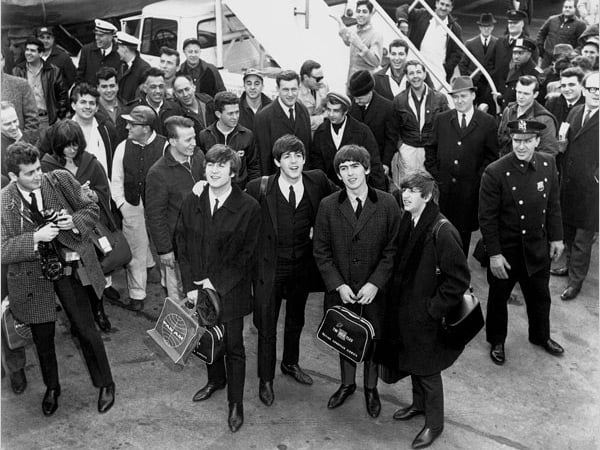Could “Brexit” Be the End of English As We Know It?

Photo via YouTube
Click onto any social media news feed and you are likely to see a lot of talk about the impending UK referendum, the European football tournament too, but most of all what is being called the “Brexit”.
As many of you may already know, the referendum could make European history as Britain would be the first nation to leave the EU since its establishment in 1951 (formerly known as the European Coal and Steel Community). There’s a lot of speculation on how this will affect trade, economies and international relations with the UK, but what about the implications it could have for the English language?
The History of English in Europe
Just less than 200 years ago, Jacob Grimm, a German linguist, predicted with some accuracy that English was “destined to reign”. Today almost 2 billion people around the world speak English, and it remains the most widely spoken language of the 28 EU member states.
The growth of English into the most dominant language in Europe was largely due to traders, missionaries, pilgrims and sailors of the British Empire; not to mention the works of Shakespeare which are studied and revered worldwide. And though English no longer dominates post-colonial countries, it remains a means of communication for administrative, educational and political purposes; a direct legacy of the British Empire.
Check out Jay Walker’s TED Talk which sums up “The World’s English Mania.”

Photo via The Enchanted Manor
British pop music also played an integral role. Legendary pop songs by the Beatles or the Rolling Stones spread English worldwide, and faster than any other source before it. Even multinational companies like Microsoft or Samsung have adopted English as a language to improve communication for their business endeavours.
In short, English has evolved into more than just a language of wider communication but a language of prestige across Europe.
Euro-English
If you are not already familiar with this term, don’t panic. This is a relatively new English language variety which is arguably the lingua franca of Europe. You may have already encountered such examples in the form of incorrectly pluralised nouns or false friends. Try the sentence, “I am very bad with separation”, although understandable, no native English speaker would express themselves in this way.
Compared to Australian or American-style English, Euro-English is still in its infancy, and the EU provides some rules and regulations in the form of an English Style Guide for Europeans; mainly promoting a British standard of English. However, it is uncertain whether the EU will still deem it appropriate to stick to this style of English if Britain is no longer a part of it.
Learning a new language? Check out our language placement tests to see how your level measures up!
The Future of English in Europe
One argument is that a type of “pidgin” English would emerge, similar to that seen in the Caribbean or places like India. Although this style of Pseudo-Anglicism is still intelligible, it could create more miscommunication between native and non-native English speakers, particularly as countries within the EU are comprised of so many linguistic backgrounds. And as the economic and commercial power of countries like China increase, Europe could choose to adopt a more Chinese-style of English (since over 10 million of its citizens speak English), moving Euro-English even further away from its origins.
Eventually the fate of the English language could be somewhat similar to that of Latin – a defunct language. Just as Latin was once the language of the world during the Roman Empire, and even a few centuries after, people learnt it to gain access to knowledge and succeed in life. Although its influences can be still be found in many languages, particularly the romance languages, its uses are now confined to the areas of academia and medicine.
If the English language does meet the same fate as Latin, it is unlikely to do so for many centuries as we no longer have to rely on arduous, physical means to communicate across countries; we can virtually cross borders through an ever expanding network of mainstream and social media. Just look at the Eurovision Song Contest. Even though the UK hasn’t featured in the top 10 for over 5 years, all its winners have sung in English in the equivalent period. Even if Europe doesn’t love British music it certainly seems to love the language!

Photo via Flickr
American culture has played a significant role in spreading the English language too, arguably more so than the UK. Since its independence in 1776, many grammatical and spelling rules concerning the English language increasingly became blurred, whilst it grew to be the most influential country in the world. Hollywood, one of its most robust influencers, captures the imagination of viewers by transporting us to days of the wild, wild West or unforgettable TV moments with Friends on a global scale (seriously, Friends is everywhere).
So what would happen to the English language in Europe, without the English?
The ubiquity and usefulness that English plays for organisations across Europe currently outweighs alternative languages for communication (though French and German are almost as widely spoken). But we may witness a rapid increase for demand in multilingual speakers, especially if English-speaking countries wish to preserve relations with Europe.
Whether you believe the UK are stronger in or better off out, a “Brexit” could cause a seismic shift in how we communicate with Europe. The question is, for how long will English remain number one?
